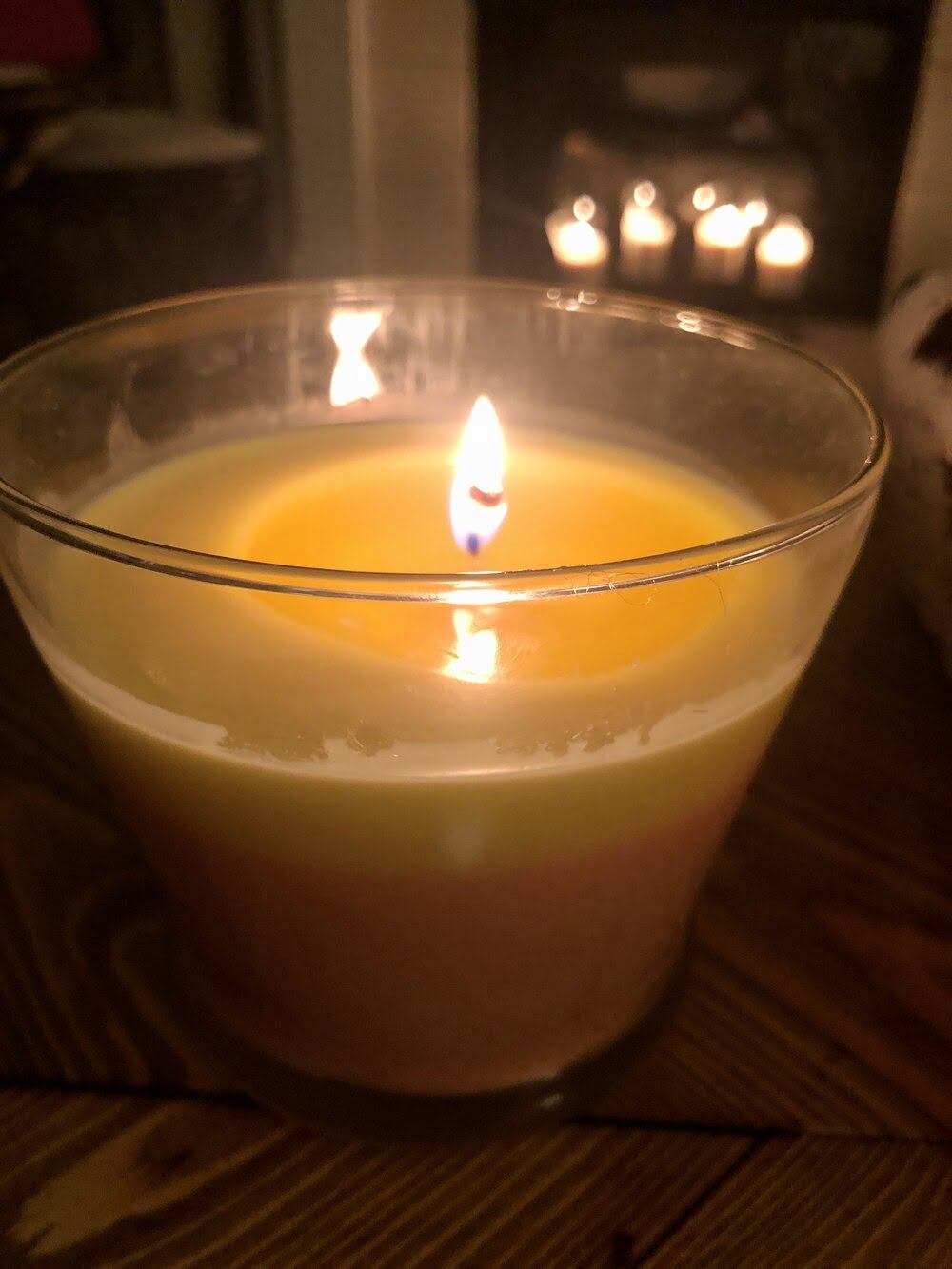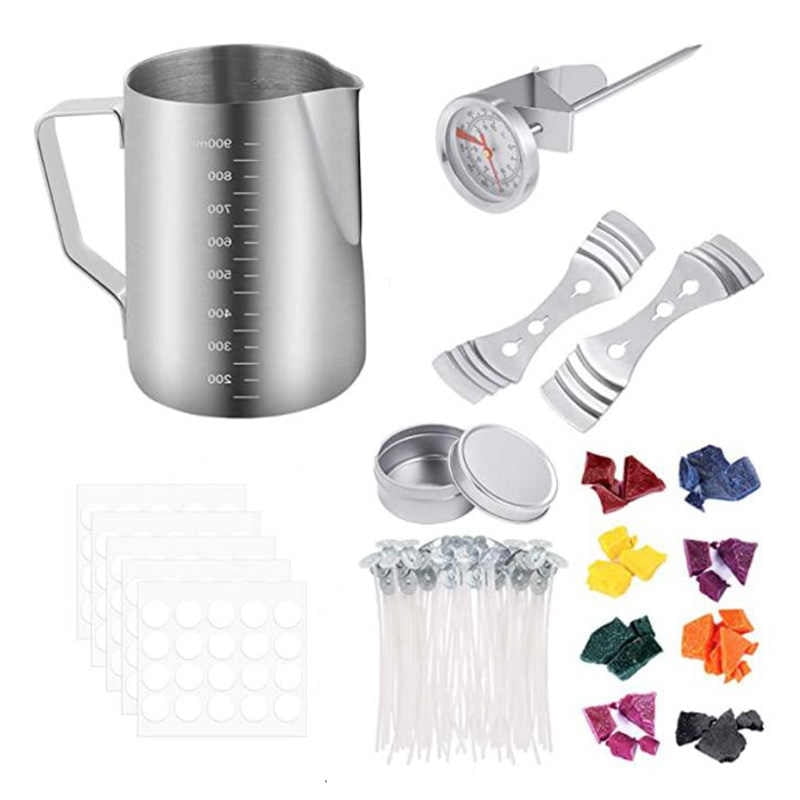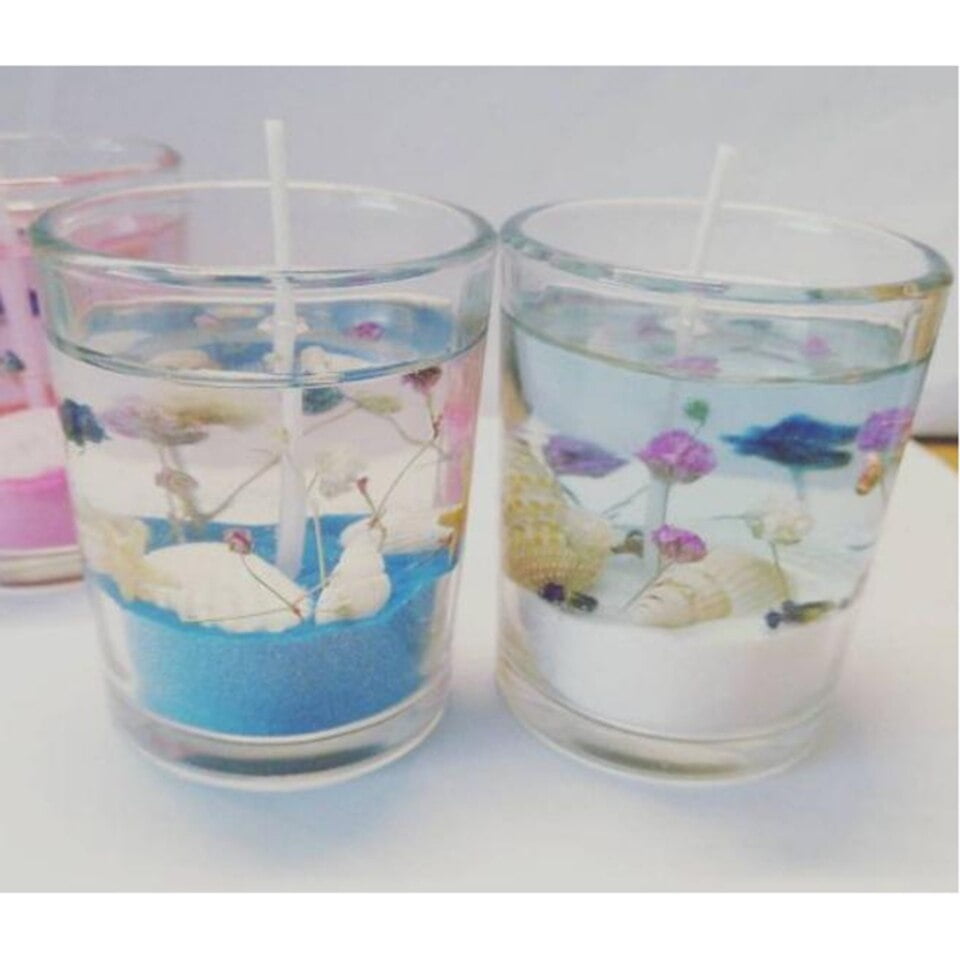Candle making has become a lucrative and booming industry in Nigeria, with increasing numbers of entrepreneurs tapping into this market. The demand for candles in the country has seen a notable rise in recent years, as more people are incorporating these scented and decorative items into their homes and businesses. In this article, we will explore the profitability of candle making in Nigeria and delve into various aspects of this industry.
The trend of candle making in Nigeria can be attributed to several factors. First and foremost, candles have always been an essential item in Nigerian households for both practical and cultural purposes. They are not only used for lighting during power outages but also play a significant role in traditional ceremonies and celebrations. Additionally, the increasing interest in home decor and ambiance has fueled the demand for decorative candles, making them a must-have item for many.
This growing trend has created ample opportunities for entrepreneurs to establish successful candle making businesses. With a wide variety of candles available on the market today, ranging from pillar candles to scented soy candles, there is immense potential for profit. In fact, the candle market in Nigeria is valued at millions of naira annually, making it an attractive venture for anyone interested in starting their own business.
In the following sections of this article, we will delve deeper into the origin and evolution of candle making in Nigeria, explore the current state of the Nigerian candle market regarding demand and supply, analyze the factors that determine profitability in this industry, and present success stories from candle making entrepreneurs who have found great success. We will also discuss the challenges faced by those entering this market as well as provide helpful tips on how to navigate them.
Ultimately, our aim is to shed light on the prospects and future potential of candles making in Nigeria.
Historical Perspective
Candle making in Nigeria has a long and fascinating history that dates back centuries. The origin of candle making can be traced back to traditional methods used by indigenous tribes, where animal fats and natural resources were melted and molded into primitive yet functional candles. Over time, the art of candle making evolved and adapted to modern techniques, bringing forth an industry that is both profitable and sustainable.
The traditional methods of candle making involved using animal-based fats such as tallow or beeswax, which were readily available in Nigeria. These materials were melted down, mixed with fibers from palm tree leaves or cotton, and poured into molds made from clay or hollowed-out gourds. The resulting candles served various purposes such as lighting homes, illuminating pathways during festivities, and even for religious ceremonies.
With the advent of colonialism in Nigeria came the introduction of new materials and technologies for candle making. Imported paraffin wax replaced traditional animal fats as the main ingredient in candles, leading to increased durability and longer burn times. This shift revolutionized the Nigerian candle industry, providing greater convenience to consumers and opening up opportunities for entrepreneurs.
Today, the candle making industry in Nigeria continues to flourish with a wide range of products available in the market. From decorative scented candles to basic household candles, there is something for everyone. The demand for candles remains high due to frequent power outages experienced in many parts of the country, creating a constant need for alternative lighting sources. Additionally, candles are also used extensively during religious festivals and special occasions.
| Year | Revenue (in millions Naira) |
|---|---|
| 2015 | 500 |
| 2016 | 600 |
| 2017 | 700 |
| 2018 | 800 |
| 2019 | 900 |
The revenue for the Nigerian candle market has been steadily increasing over the years, showcasing the profitability of this business venture. With a growing population and urbanization, the demand for candles is expected to further rise in the coming years. This presents a lucrative opportunity for aspiring entrepreneurs to tap into the candle making industry and contribute to the economic growth of Nigeria.
Overall, understanding the historical perspective of candle making in Nigeria is essential in recognizing its significance and potential. By embracing modern techniques and adapting to changing consumer preferences, the candle making industry in Nigeria has successfully evolved into a profitable venture that continues to thrive.
Exploring the Nigerian Candle Market
The Nigerian candle market has experienced significant growth in recent years, driven by an increasing demand for candles across various sectors. Candles are no longer seen as just a source of light during power outages or celebrations, but also as decorative and aromatic additions to homes and events. This growing trend has created opportunities for entrepreneurs to tap into the profitable business of candle making in Nigeria.
In terms of demand, the Nigerian candle market is driven by both individual consumers and institutional buyers. Individual consumers purchase candles for personal use, whether it be for lighting purposes or as an aesthetic element in their homes. On the other hand, institutional buyers include event planners, hotels, churches, and restaurants that frequently require candles for decoration or religious purposes.
Additionally, there has been a growing awareness among Nigerians about the benefits of using non-toxic and environmentally friendly candles. This has led to an increased demand for natural and organic candles made from ingredients such as soy wax and essential oils. Candle makers who can cater to this niche market have the potential to differentiate themselves and attract a dedicated customer base.
On the supply side, the Nigerian candle market offers ample opportunities for local candle makers due to its sheer size and diversity. While there are already established international brands operating in Nigeria, there is still room for domestic players to capture a significant portion of the market share.
Furthermore, with access to raw materials such as paraffin wax, beeswax, fragrance oils, wicks, and dyes readily available within the country or through trade partners, starting a candle making business in Nigeria becomes viable and cost-effective.
Indeed, with rising demand and favorable market conditions, exploring the Nigerian candle market presents aspiring entrepreneurs with substantial potential for profitability and success. With careful planning and execution, candle making can prove to be a lucrative business venture in Nigeria’s evolving consumer landscape.
Empowering the Nigerian Economy
Candle making has emerged as a lucrative business venture in Nigeria, offering opportunities for entrepreneurs to contribute to the growth of the Nigerian economy. The candle industry has experienced significant growth in recent years, fueled by increasing demand from both domestic and international markets. This section will explore the potential for candle making to empower the Nigerian economy and provide a source of income for aspiring entrepreneurs.
One of the key ways in which candle making empowers the Nigerian economy is by creating employment opportunities. As more individuals venture into candle making businesses, there is a growing need for skilled workers to assist with production, packaging, and marketing. This leads to job creation at various levels within the industry, helping to address the issue of unemployment in Nigeria.
Furthermore, candle making also stimulates other sectors of the economy. The process requires raw materials such as wax, fragrance oils, wicks, and containers that are sourced locally or imported. By patronizing these suppliers, candle makers indirectly support other small businesses and industries involved in producing these materials. This chain effect contributes to economic growth by boosting local manufacturing and trade.
Additionally, the profitability of candle making as a business venture attracts investment and fosters entrepreneurship in Nigeria. Aspiring entrepreneurs are drawn to this industry due to its low start-up costs and high profit margins. With proper planning and market research, individuals can establish successful candle making businesses that generate substantial income while contributing to the overall economic development of Nigeria.
Factors Determining Profitability
When it comes to determining the profitability of a candle making business in Nigeria, there are several key factors that can significantly impact its success. By understanding these key drivers, entrepreneurs can make informed decisions and optimize their operations for maximum profitability.
Cost of Materials and Production
One of the biggest factors influencing the profitability of candle making in Nigeria is the cost of materials and production. The price of raw materials such as wax, wicks, fragrances, and dyes can vary depending on their quality and availability. It is important for candle makers to source these materials at competitive prices, while also ensuring their quality standards are met.
Additionally, efficient production processes can greatly impact profitability. Investing in modern equipment and technology can help reduce production costs by increasing productivity and minimizing waste. Moreover, optimizing production schedules and batch sizes can result in cost savings as well.
Pricing Strategy
Setting the right price for candles is crucial for maintaining profitability. A well-defined pricing strategy should take into consideration factors such as material costs, labor expenses, overheads, market demand, competition, and desired profit margin. Careful market research is essential to understand customer preferences and willingness to pay for different types of candles.
It is also important for candle makers to constantly evaluate their pricing strategy based on market dynamics and changes in costs. Regular monitoring of competitors’ prices and adapting pricing strategies accordingly can help ensure competitiveness while maximizing profitability.
Marketing and Distribution
Effective marketing strategies play a vital role in driving sales and ultimately determining profitability. Understanding consumer behavior, demographics, trends, and preferences will enable candle makers to develop targeted marketing campaigns that resonate with their target audience.
Having a strong online presence through social media platforms, a dedicated website or e-commerce platform allows businesses to reach a wider audience beyond traditional brick-and-mortar stores. Utilizing influencer marketing, collaborations, and partnerships can also help increase brand visibility and credibility.
In terms of distribution, having a well-established network of retailers and wholesalers can ensure wider product reach while reducing costs associated with distribution. Exploring niche markets, such as luxury candles or eco-friendly candles, can also open up new opportunities for higher profitability.
By understanding and effectively addressing these key drivers of profitability in the candle making business in Nigeria, entrepreneurs can position themselves for success in this growing industry. Implementing strategies to optimize cost efficiency, pricing, and marketing will undoubtedly contribute to increased profitability and long-term sustainability.
Case Studies
Candle making has proven to be a lucrative business venture in Nigeria, with several success stories of entrepreneurs who have thrived in this industry. In this section, we will explore some inspiring case studies of candle making entrepreneurs who have made a name for themselves and achieved significant profitability.
Taya Candles: Turning a Hobby into a Profitable Business
One success story in the Nigerian candle making industry is Taya Candles, founded by Joy Edeh. What started as a hobby quickly turned into a profitable business venture. Edeh’s passion for candles led her to experiment with different scents, designs, and production techniques. She soon realized the demand for unique and customized candles in Nigeria and decided to start her own brand.
Through strategic marketing on social media platforms and attending local craft fairs, Taya Candles gained popularity and attracted a loyal customer base. Today, Taya Candles offers a wide range of hand-poured soy wax candles with exquisite fragrances and elegant designs. The business has experienced significant growth, allowing Edeh to expand her product line and collaborate with other local artisans.
Mahogany Light: Empowering Women through Candle Making
Another success story comes from Mahogany Light, an initiative founded by Chika Nwandokwu that focuses not only on producing high-quality candles but also empowering women in rural communities. Nwandokwu recognized the potential for candle making as both a business opportunity and a means of generating employment in marginalized areas.
Mahogany Light trains women from rural communities in candle making techniques and provides them with the necessary equipment to start their own small businesses. Through this empowerment model, Nwandokwu not only creates economic opportunities but also fosters independence among these women.
Luminous Glow: Scaling Up through Diversification
Luminous Glow is yet another inspiring success story in the Nigerian candle making industry. Founded by Emeka Ikediobi, Luminous Glow initially focused on producing traditional wax candles. However, Ikediobi recognized the need to diversify the product line to cater to changing customer preferences.
By adding scented candles, decorative pillar candles, and personalized candle sets, Luminous Glow was able to attract a wider customer base and increase its revenue streams. The company also tapped into the corporate gifting market and established strategic partnerships with hotels and event planners. Today, Luminous Glow is renowned for its premium quality candles and has become a household name in Nigeria.
These success stories demonstrate the tremendous potential of candle making as a profitable business opportunity in Nigeria. By tapping into their creativity and understanding customer demands, these entrepreneurs have managed to carve out a niche in a competitive market. Through innovation, strategic marketing, and empowering others, they have achieved financial success while contributing to the growth of the Nigerian candle industry.
Challenges and Opportunities
Navigating the candle making market in Nigeria comes with its fair share of challenges and opportunities. This section will explore some of the common challenges faced by candle makers in Nigeria, as well as highlight the potential opportunities that exist within the market.
Challenges
One of the biggest challenges faced by candle makers in Nigeria is the competition from imported candles. Imported candles often flood the market at lower prices, making it difficult for local candle makers to compete. This poses a threat to their profitability and requires them to find innovative ways to differentiate themselves and their products.
Another challenge is the availability and cost of raw materials. The quality of raw materials used in candle making can greatly impact the final product. However, sourcing high-quality raw materials at affordable prices can be challenging, especially for small-scale candle makers who may not have access to large procurement networks.
Additionally, inadequate power supply is a major challenge for candle makers in Nigeria. The frequent lack of electricity means that candle makers rely on alternative power sources such as generators, which can significantly increase production costs.
Opportunities
Despite these challenges, there are several opportunities within the Nigerian candle market that can be capitalized on by aspiring entrepreneurs. One such opportunity lies in creating unique and customized candles that cater to specific customer preferences. By offering personalized designs, scents, or packaging options, candle makers can differentiate themselves from their competitors and attract a niche market segment.
Furthermore, there is a growing trend towards environmentally sustainable products globally, including candles made from natural ingredients such as soy wax or beeswax. This presents an opportunity for Nigerian candle makers to tap into this market by producing eco-friendly candles that resonate with environmentally-conscious consumers.
Another opportunity lies in expanding beyond traditional retail channels and exploring online platforms for selling candles. With the rise of e-commerce platforms in Nigeria, online sales have become increasingly popular among consumers. By establishing an online presence and leveraging digital marketing strategies, candle makers can reach a larger customer base and increase their sales.
Tips for Starting a Candle Making Business in Nigeria
Starting a candle making business in Nigeria can be a lucrative venture, provided you have the right knowledge and resources. Here are some tips to help you get started:
- Research and Planning: Before diving into the candle making business, it is crucial to conduct thorough research and develop a solid business plan. This includes studying the market demand, identifying potential competitors, understanding consumer preferences, and determining your target market. Additionally, outline your financial goals and strategies for branding, production, distribution, and marketing.
- Acquire Skills and Knowledge: To excel in the candle making industry, it is essential to gain hands-on experience and acquire the necessary skills. Consider attending workshops or training programs that specialize in candle making techniques such as wax melting, molding, fragrance blending, color mixing, and packaging. This will not only enhance your technical proficiency but also enable you to create unique and high-quality candles that stand out in the market.
- Source Materials Wisely: The quality of your candles depends on the materials used. Identify reliable suppliers who offer high-quality raw materials like wax (paraffin or soy), wicks (cotton or wooden), dyes or pigments (for coloring), fragrance oils (for scent), containers or molds (for shaping), packaging materials (labels, boxes). Negotiate prices with suppliers to ensure cost-effectiveness without compromising on quality.
- Start Small: It is advisable to start small when launching your candle making business in Nigeria. Begin by producing a limited range of candles until you establish a loyal customer base and understand their preferences better. Starting small also allows you to manage overhead costs effectively and minimize financial risks associated with large-scale production.
- Localize Your Products: One way to attract customers is by incorporating local elements into your candle designs. Nigerians appreciate products that showcase their culture, traditions, or landmarks. Consider using local patterns like Ankara prints for candle holders or packaging materials that reflect Nigerian aesthetics. This not only appeals to the local market but also creates a unique selling point for your candles.
- Create a Brand Identity: Developing a strong brand identity is crucial for success in the candle making business. Have a catchy and memorable brand name, logo, and tagline that resonate with your target audience. Invest in professionally-designed labels and packaging that reflect the quality and uniqueness of your candles. Leverage social media platforms to create an online presence and engage with potential customers.
By following these tips, you can increase your chances of starting a successful candle making business in Nigeria. It is important to remain flexible, adapt to market trends, continuously innovate, and consistently deliver high-quality products to maintain a competitive edge in the industry.
| Tips | Details |
|---|---|
| Research and Planning | Conduct thorough research on the market demand, competitors, consumer preferences, and develop a comprehensive business plan. |
| Acquire Skills and Knowledge | Attend workshops or training programs to gain hands-on experience in candle making techniques such as wax melting, fragrance blending, and packaging. |
| Source Materials Wisely | Identify reliable suppliers who offer high-quality raw materials such as wax, wicks, dyes or pigments, fragrance oils, containers or molds. |
| Start Small | Begin by producing a limited range of candles until you establish a loyal customer base and understand their preferences better. |
Marketing and Selling Strategies
When it comes to candle making in Nigeria, having effective marketing and selling strategies is essential for success. With the growing demand for candles in Nigeria, it is important for candle makers to develop strategies that can help them capture the market and stand out from their competitors.
One effective strategy is to understand and target specific customer segments. By identifying different customer groups and their preferences, candle makers can tailor their products and marketing messages to appeal directly to these customers. For example, there may be a segment of customers who prefer scented candles while others may prefer plain ones. Identifying these preferences and developing products that cater to each segment can significantly increase sales.
In addition to targeting specific customer segments, another important strategy is to establish a strong online presence. This can be done through social media platforms, websites, and online marketplaces specifically designed for selling handmade products.
Creating visually appealing content that showcases the uniqueness of your candles can attract potential customers and engage with existing ones. Furthermore, using techniques such as search engine optimization (SEO) can help improve your visibility in online searches, increasing the chances of potential customers finding your business.
Furthermore, collaborating with influencers or bloggers who have a strong following in Nigeria can greatly boost your brand awareness and credibility. Partnering with popular lifestyle or home décor influencers who align with your brand values can expose your candles to a wider audience and generate interest in your products.
Lastly, offering incentives such as discounts or promotional offers not only encourages customers to make a purchase but also creates customer loyalty by incentivizing repeat purchases. Additionally, organizing giveaways or contests on social media platforms can create buzz around your brand while simultaneously generating user-generated content that promotes your candles.
By implementing effective marketing and selling strategies such as targeting specific customer segments, establishing a strong online presence, collaborating with influencers, and offering incentives, candle makers in Nigeria can capture the market and maximize their profitability potential.
Conclusion
In conclusion, candle making in Nigeria has demonstrated significant growth and potential in recent years. With the demand for candles continuing to rise, driven by both traditional use and new trends in home decor, there is a clear market opportunity for entrepreneurs looking to enter this industry. The Nigerian candle market is currently underserved, providing ample room for new players to establish their businesses and carve out a niche.
The profitability of candle making in Nigeria is influenced by various factors, such as the cost of raw materials, production efficiency, and marketing strategies. Despite challenges such as fluctuating prices of raw materials and competition from imported candles, successful entrepreneurs have shown that with careful planning and effective management practices, substantial profits can be achieved.
Furthermore, the future prospects of candle making in Nigeria are promising. As the economy continues to grow and consumers’ disposable incomes increase, the demand for candles is expected to further rise. Additionally, there is potential for expansion into related markets, such as scented or decorative candles. Entrepreneurs who innovate and offer unique products or services will likely find success in capturing a larger portion of the market.
Frequently Asked Questions
How profitable is candle business in Nigeria?
The profitability of the candle business in Nigeria can vary depending on various factors. In general, there is a demand for candles in the country, both for practical purposes and for decorative or religious use. However, competition can be quite high, especially with imported candles flooding the market.
To achieve profitability, it is important to differentiate your products by offering unique designs, scents or packaging that sets them apart from the competition. Additionally, effective marketing strategies and building a loyal customer base can also contribute to the profitability of a candle business in Nigeria.
Is scented candles a good business in Nigeria?
Scented candles can be a good business opportunity in Nigeria due to their increasing popularity and demand among consumers. Scented candles provide an added sensory experience and create a calming ambience for customers.
With proper branding and marketing efforts targeting specific niches such as aromatherapy or home decor enthusiasts, scented candles can stand out from regular candles and establish a dedicated customer base. It is important to carefully select high-quality fragrance oils to ensure that the scents are long-lasting and pleasing to customers’ preferences.
How much profit do you make from making candles?
The profit margin from making candles can vary depending on several factors such as production costs, pricing strategy, overhead expenses, and market demand. Generally, handmade artisanal candles tend to have higher profit margins compared to mass-produced ones due to their uniqueness and perceived value among consumers.
By utilizing cost-effective ingredients, purchasing materials in bulk, optimizing production processes, and implementing efficient inventory management systems, candle makers have better chances of maximizing their profit potential. However, it’s crucial to conduct thorough market research and take into account factors like competition and pricing dynamics when estimating potential profits from making candles.

Welcome to my candle making blog! In this blog, I will be sharing my tips and tricks for making candles. I will also be sharing some of my favorite recipes.





